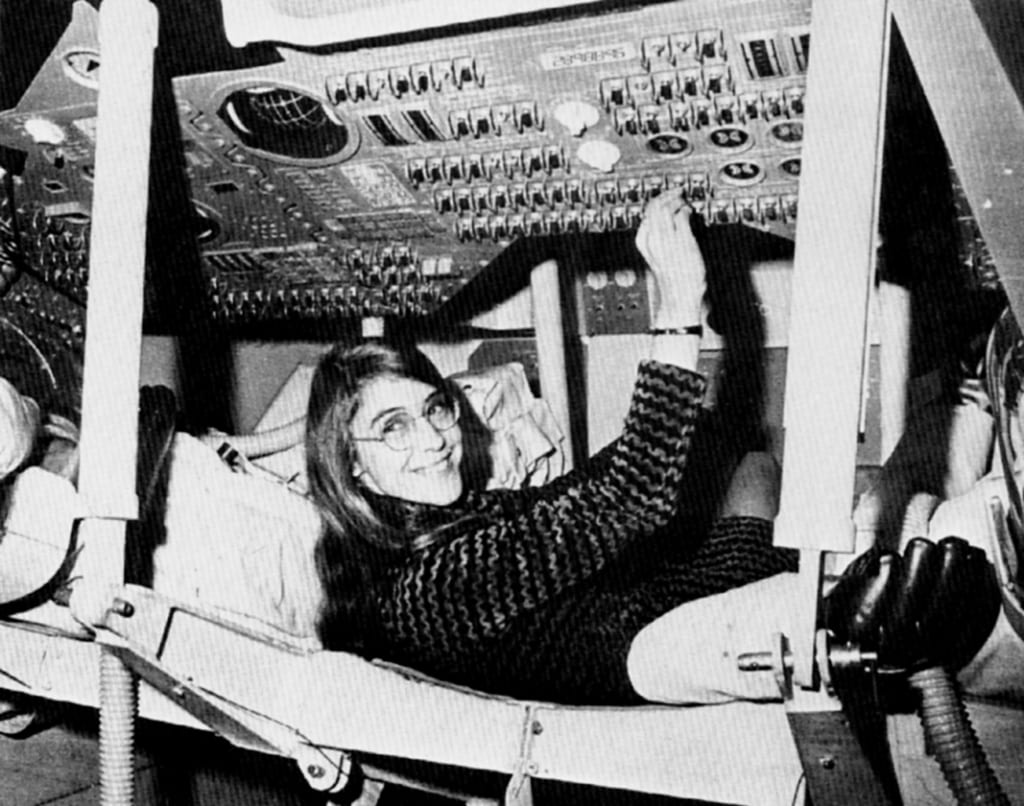5 female coders you have probably never heard of who changed the world

Recent research suggests that female coders are considered better – but only if they hide their gender.
Image: REUTERS/Pawel Kopczynski
Stay up to date:
Gender Inequality
Computer programming is a field dominated by men, right?
Well, in terms of sheer numbers that’s true. Data from the US Bureau of Labor Statistics shows that 73% of US computer science workers are male coders and only 27% are female coders. Across technology generally, women are underrepresented.

But, recent research suggests that female coders are considered better than their male counterparts – but only if they hide their gender.
Female coders who made a mark
Here are five female coders who have made significant contributions to the field – and indeed helped change the world.
Margaret Hamilton - coded for the first portable computer
Margaret Hamilton was director of software engineering for the project that wrote the code for the Apollo Guide Computer (AGC). Developed at the MIT Instrumentation Laboratory for the Apollo 11 mission, the programmers literally had to start from scratch.

The team wrote the code for the first portable computer. Their work made the first moon landing possible and spawned a new industry. Hamilton became an expert in systems programming, but as she explained to Wired:
“When I first got into it, nobody knew what it was that we were doing. It was like the Wild West. There was no course in it. They didn’t teach it.”
Grace Hopper - the Queen of Software
Rear Admiral Dr Grace Murray Hopper pioneered the development of accessible computer programming languages written in English.
One of the first well-known female coders in the world, she believed opening up computing to business and non-scientific applications required simpler programming languages. Established wisdom was that computers didn’t understand English and it took years before her ideas were accepted.
But through her perseverance, she developed a means of programming using words rather than numbers – most notably the COBOL (Common Business Orientated Language) language.
She was described by US talk show host David Letterman as the ‘Queen of Software’.
Accept our marketing cookies to access this content.
These cookies are currently disabled in your browser.
The ENIAC women coders
A bunch of six young female coders had developed the first all-electronic, programmable computer as part of the US Army’s World War Two effort. When the ENIAC was first unveiled, these women coders received no recognition.
Accept our marketing cookies to access this content.
These cookies are currently disabled in your browser.
Ada Lovelace - the pioneer for female coders
The daughter of British poet Lord Byron, Ada Lovelace was a Victorian mathematician and a pioneer for female coders. She worked with Charles Babbage on his calculating machines – he called her the “enchantress of numbers”.
At the time few women studied science or maths, and she is widely considered the founder of computing science and the world’s first computer programmer.

The British Science Museum argues she foreshadowed modern computing by a century, by understanding the ability of the calculating machines to “manipulate symbols rather than just numbers”.
Her notes on a translation of an Italian description of the machine include what is considered as the very first algorithm designed for machine processing. She also suggested the possibilities of such a device for creating graphics or music.
Joan Clarke - for decoding German codes during WW2
Immortalized in the film by Keira Knightley in The Imitation Game, Joan Clarke worked alongside Alan Turing at Bletchley Park – the British codebreaking center during World War Two.
Accept our marketing cookies to access this content.
These cookies are currently disabled in your browser.
Clarke (later Murray), a female coder, worked on the project to break the German Enigma ciphers. A Cambridge mathematician, she and the rest of the team built some of the earliest computers, known as bombes. These were used to decipher German codes. It is frequently suggested that their efforts shortened the war by up to two years.

Clarke was originally employed as a clerical worker at Bletchley. Once she was promoted to work on code-breaking, she had to be officially designated as a linguist, because there were no procedures in place for a senior female cryptanalyst.
She is reported to have taken great pleasure in completing forms with “Grade: Linguist, Languages: none.”
While these 5 female coders have always been changemakers – let’s continue to celebrate their accomplishments and empower the next generation of girls to enter into this exciting field.
Have you read?
Don't miss any update on this topic
Create a free account and access your personalized content collection with our latest publications and analyses.
License and Republishing
World Economic Forum articles may be republished in accordance with the Creative Commons Attribution-NonCommercial-NoDerivatives 4.0 International Public License, and in accordance with our Terms of Use.
The views expressed in this article are those of the author alone and not the World Economic Forum.
Forum Stories newsletter
Bringing you weekly curated insights and analysis on the global issues that matter.
More on Equity, Diversity and InclusionSee all
Tea Trumbic and Dhivya O’Connor
May 13, 2025
Harrison Lung and Hatem Bamatraf
May 7, 2025
Zainab Azizi
April 9, 2025


